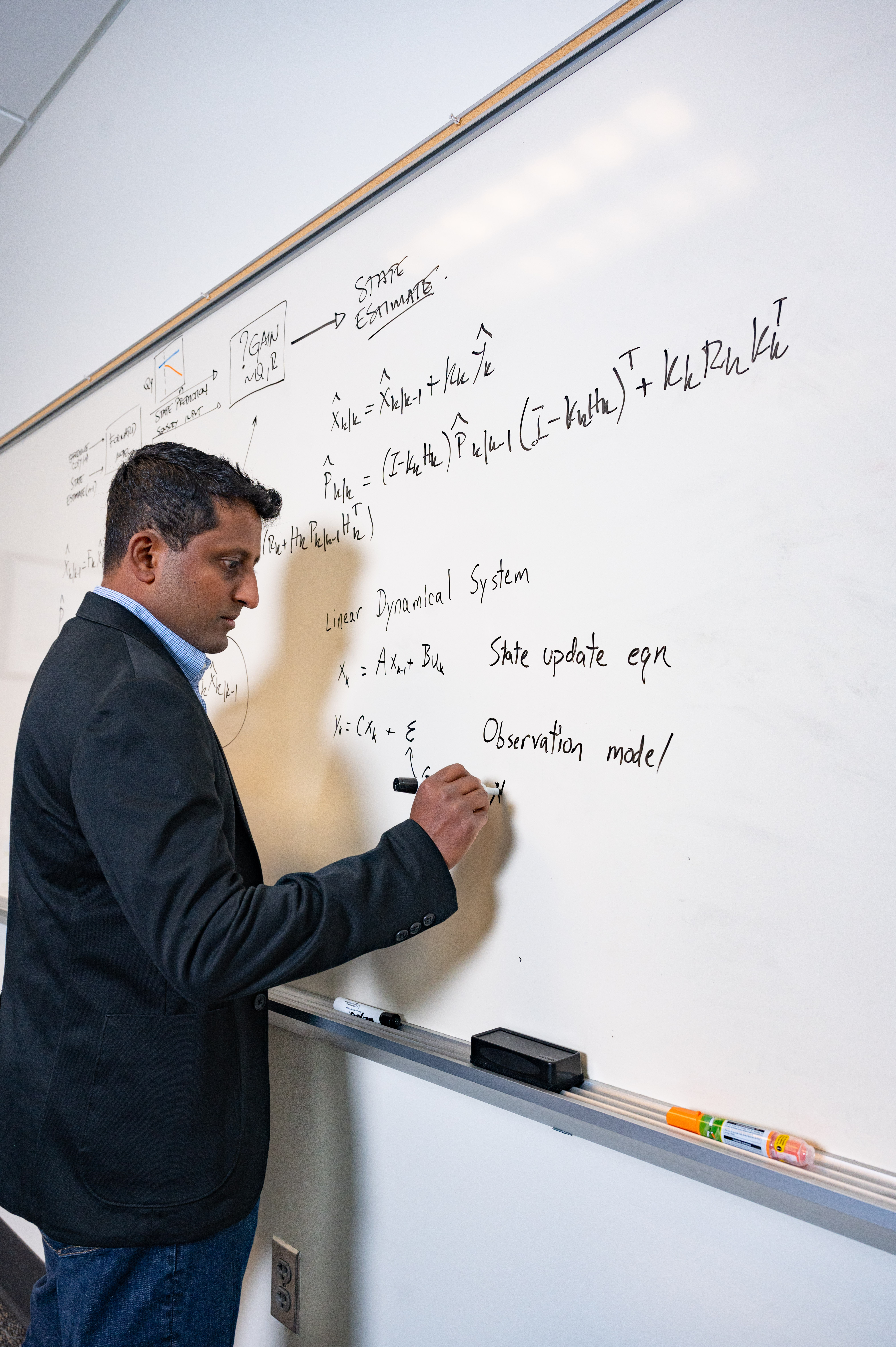The human brain, composed of about 86 billion noisy neurons, is a reliable, durable, complex, and cryptic biological supercomputer. A community of multidisciplinary researchers at Georgia Tech is decrypting that neuronal chatter, which may hold the key to better treatments for disease and addiction, advanced robotics and artificial intelligence (AI), and even global energy efficiency.
These researchers work in the realm of computational neuroscience, a branch of neuroscience that uses mathematical models, computer simulations, and theoretical analysis of the brain to gain a deeper understanding of the nervous system.
"We want to understand the brain and the important data that we gather from this amazing, mysterious organ,” said Chethan Pandarinath, assistant professor in the Wallace H. Coulter Department of Biomedical Engineering at Georgia Tech and Emory University. “But for a long time, we really didn’t have the adequate tools.”
Basically, the ability to look at the brain and gather large amounts of data from it has advanced rapidly — faster than our ability to understand it all.
“There has been an explosion of technology over the past five or 10 years,” Pandarinath said. “So, we’re moving into a different space in the ways we approach the brain, and the ways we think about it.”
Pandarinath and fellow Coulter Department faculty members Eva Dyer and Chris Rozell are profiled, along with several other Georgia Tech researchers working in computational neuroscience, this week.
Latest BME News
Jo honored for his impact on science and mentorship
The department rises to the top in biomedical engineering programs for undergraduate education.
Commercialization program in Coulter BME announces project teams who will receive support to get their research to market.
Courses in the Wallace H. Coulter Department of Biomedical Engineering are being reformatted to incorporate AI and machine learning so students are prepared for a data-driven biotech sector.
Influenced by her mother's journey in engineering, Sriya Surapaneni hopes to inspire other young women in the field.
Coulter BME Professor Earns Tenure, Eyes Future of Innovation in Health and Medicine
The grant will fund the development of cutting-edge technology that could detect colorectal cancer through a simple breath test
The surgical support device landed Coulter BME its 4th consecutive win for the College of Engineering competition.








